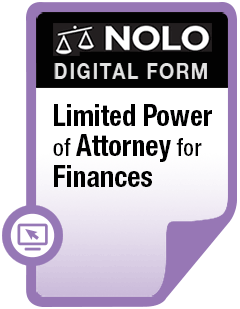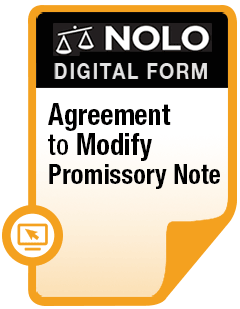Take control of your finances by learning the basics of money management.
Money management is the key to improving or maintaining your financial situation. Each of us has our own particular relationship with money. Some want as much of it as possible and devote significant time and energy to its pursuit. Others prefer to live simply on minimal resources. Perhaps most of us fall somewhere in the middle, wanting to live comfortably without sacrificing the quality or balance of our lives.
No matter what you want your money to do for you, learning the basics of money management will help you make it happen.
Why Financial Management Is Important
Most people find dealing with personal finances a chore. Often, they're not comfortable with math, don't feel they have enough time, or are even fearful of finding out that there's just not enough money in the bank to cover the bills.
However, willful ignorance about finances will get you nowhere. Financial knowledge yields financial power.
How to Learn About Financial Management
To improve your financial management skills, learn what's involved. The different aspects of financial management include:
- budgeting
- banking and saving
- paying taxes
- investing
- managing debt
- retirement planning, and
- estate planning.
You don't have to learn everything at once or become an expert. Start with the basics, and continue to educate yourself over time.
How to Make a Budget
Drafting a personal budget is one of the best ways to control your spending. Until you know what you earn and spend, you can't figure out how to live within your means.
Don't be intimidated by the process. Creating a budget can be simple and easy.
Banking and Saving
When it comes to deciding where to keep your hard-earned money, not all banks are the same. Fees vary greatly. Banks might charge you for visiting a branch, speaking with a customer service representative by phone, paying bills online, overdrawing your account, or other events.
Choose a bank that has the best balance of customer service and fees, considering the types of services you plan to use the most. Here are some factors to consider:
- Checking accounts. Some checking accounts waive certain fees if you have your paycheck directly deposited into your account. Most checking accounts also come with debit cards, which you can use to withdraw money from your account and pay for items as you would with a credit card. (See "Check Cashing FAQ" below for more information on how checks work.)
- Savings accounts. For savings accounts, ask about interest rates, minimum balances, and whether you're allowed only a certain number of monthly transactions. If so, you will generally be charged for each transaction over the limit.
- Protect yourself from identity theft. Be sure to ask about the bank's policies to protect you from fraud and identity theft if someone uses your ATM or debit card without your permission.
Paying Your Taxes
File your tax return on time. If you can't, it's easy to get an extension by filing a simple form. But an extension doesn't extend your time to pay any taxes you owe; you'll have to pay these when you file for the extension.
Keep all documents related to your return for at least three years after you file.
Investing Your Money
When considering ways to invest your money, some common possibilities include (in roughly increasing order of risk): certificates of deposit (CDs), bonds, mutual funds, real estate, commodities, stocks, and business ventures. The riskier an investment is, the more important it is that you have some expertise or get assistance from a competent agent. Also, consider how quickly you'll be able to cash out of the investment if you need quick access to the money.
Joining a club is one way to learn more about investments.
Check Cashing FAQ
Below, you'll find answers to common check cashing questions, like whether you can cash a check you've had for a while, what happens if a collector or creditor cashes your postdated check early, what you can do to collect on a bad check, and more.
Can I Cash a Check I've Held for Months?
Generally, banks and credit unions don't have to honor checks that are more than six months old, which are called "stale." But most banks will go ahead and honor stale checks anyway, even though they don't have to.
Can a Bank Cash a Postdated Check I Wrote?
The bank can cash your postdated check at any time, even before its authorized date—unless you specifically instruct it otherwise.
To instruct the bank not to issue the funds early, both state and federal banking laws normally require that you give the bank "reasonable" notice of the postdating. Federal law doesn't provide a minimum time period within which you must notify the bank. However, you should do it as soon as possible to allow the bank time to process the instructions, and you might have to pay a fee.
You should also describe the check to the bank with reasonable certainty. In other words, give the check number, date, amount, and name of the payee. Generally, state law says that if you provide written notice about a postdated check, your notice is valid for six months, but if you give oral notice, your notice is valid for only 14 days.
If the bank releases the funds even after you've instructed it not to, the bank might then be liable to you for damages that are caused by honoring the postdated check. That might include reimbursing you for nonsufficient funds fees and penalties you incurred for subsequent checks that bounced as a result of the premature deposit.
What Happens If a Debt Collector Cashes My Postdated Check Early?
Debt collectors and creditors routinely pressure consumers into issuing postdated checks, usually over the phone. If a collector agreed to wait before cashing the check but cashed the postdated check too early, you might be able to recover statutory and actual damages.
Federal law restricts what a debt collector can and can't do with your postdated check. Specifically, under the Fair Debt Collection Practices Act (FDCPA), a debt collector can't:
- coerce you into making a postdated payment by threatening or instituting criminal prosecution
- accept a check postdated by more than five days, unless they notify you between three and ten days in advance of when they will deposit the check, or
- deposit or threaten to deposit your postdated payment early. (15 U.S.C. § 1692f (2024)).
You can sue the debt collector in state or federal court for violating the FDCPA.
Under the FDCPA, you can get up to $1,000 in statutory damages. (15 U.S.C. § 1692k (2024).) lIn addition, you might be able to get actual damages (damages based on actual harm you suffered, like nonsufficient fund charges from other transactions caused by the premature deposit), attorneys' fees, and court costs.
Talk to a lawyer if you think you might want to sue a debt collector for violating the law.
What Happens If a Creditor Cashes My Postdated Check Early?
The FDCPA doesn't cover creditors because they're not usually considered to be debt collectors. But creditors are governed by the Federal Trade Commission Act (FTCA), which prohibits them from engaging in unfair or deceptive acts or practices. The Federal Trade Commission (FTC) may consider the creditor's early deposit of your postdated check to be an "unfair or deceptive act or practice."
However, unlike with the FDCPA, you can't sue the creditor for violations of the FTCA. Instead, you should file a complaint with the FTC. You can do so by visiting its website. The FTC will then conduct its own investigation and, where relevant, take action against that creditor.
Your state's laws might offer additional protection from the premature deposit of postdated checks. For example, it might cover both debt collectors and creditors.
What Can I Do to Collect on a Bad Check?
From a legal standpoint, you have the right to sue, get a judgment, and force collections, like by attaching wages or seizing bank accounts.
Also, in some states, a judge could award you up to three times the amount of the check as punishment for the bad check. Check your state laws.
Talk to an Attorney
The laws governing checks vary among states, although many jurisdictions have similar provisions. If you wrote a postdated check that was improperly cashed or deposited before the date on the check, or you need help filing a suit to collect on a bad check, consider talking to an attorney.
Talk to a Lawyer
Need a lawyer? Start here.
How it Works
- Briefly tell us about your case
- Provide your contact information
- Choose attorneys to contact you
- Briefly tell us about your case
- Provide your contact information
- Choose attorneys to contact you



